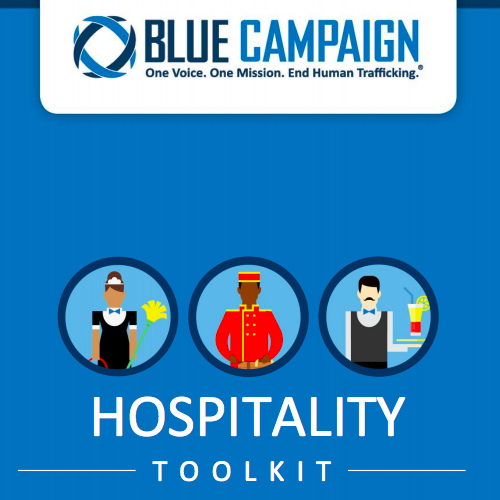-
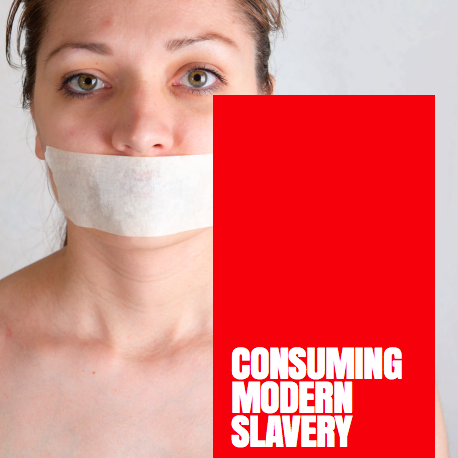 This report investigates how consumers understand modern slavery and their role in perpetuating and/or eradicating modern slavery. It is organised into three sections. The first section focuses on consumer perceptions of modern slavery, the second on consumer accounts and justifications for (widespread) inaction in relation to modern slavery, and the third on questions of consumer trust and responsibility within a multi-stakeholder environment. For each section findings are combined with related prior academic research and suggestions for change are made.
This report investigates how consumers understand modern slavery and their role in perpetuating and/or eradicating modern slavery. It is organised into three sections. The first section focuses on consumer perceptions of modern slavery, the second on consumer accounts and justifications for (widespread) inaction in relation to modern slavery, and the third on questions of consumer trust and responsibility within a multi-stakeholder environment. For each section findings are combined with related prior academic research and suggestions for change are made. -
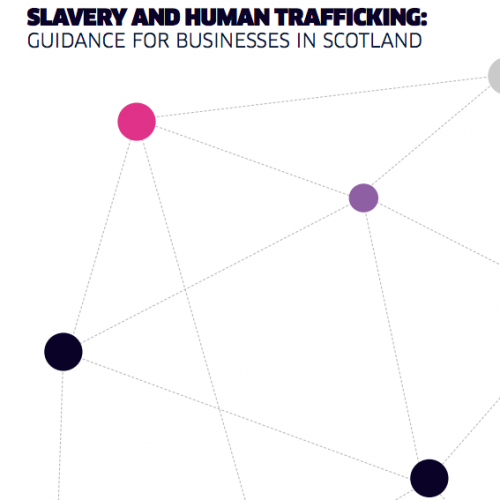 This guide provides tailored advice for all businesses in Scotland in relation to human trafficking, exploitation and every business’s legal and ethical duty. Part one is relevant to all businesses; part two contains advice for businesses with an annual turnover of £36 million or more; part three contains advice for businesses with an annual turnover below £36 million.
This guide provides tailored advice for all businesses in Scotland in relation to human trafficking, exploitation and every business’s legal and ethical duty. Part one is relevant to all businesses; part two contains advice for businesses with an annual turnover of £36 million or more; part three contains advice for businesses with an annual turnover below £36 million.Credit: Scottish Government
-
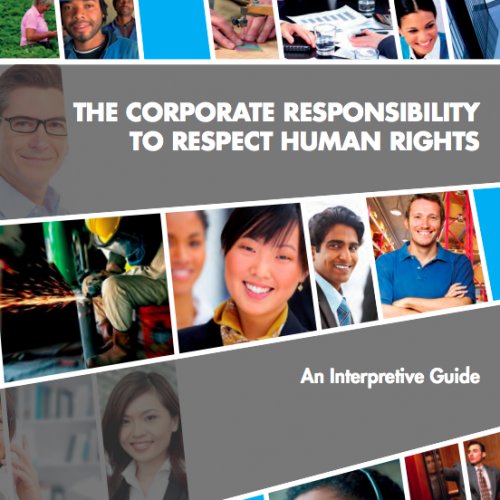 This publication is the official guidance accompanying the UN Guiding Principles on Business and Human Rights; it is designed to support effective implementation.
This publication is the official guidance accompanying the UN Guiding Principles on Business and Human Rights; it is designed to support effective implementation.Credit: OHCHR
-
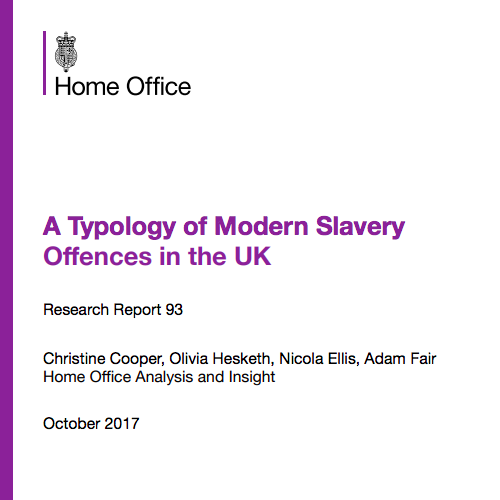 This report presents findings from research to create an evidence‐based typology of modern slavery offences in the UK. The research sought to devise a typology of modern slavery offences to improve the government's understanding of the different ways that modern slavery manifests in the UK and to inform tailored policy and operational responses. The typology, which is based on analysis on 328 confirmed cases of modern slavery in the UK, identifies 17 types of modern slavery offences setting out the characteristics of the victims, offenders and offences involved for each type.
This report presents findings from research to create an evidence‐based typology of modern slavery offences in the UK. The research sought to devise a typology of modern slavery offences to improve the government's understanding of the different ways that modern slavery manifests in the UK and to inform tailored policy and operational responses. The typology, which is based on analysis on 328 confirmed cases of modern slavery in the UK, identifies 17 types of modern slavery offences setting out the characteristics of the victims, offenders and offences involved for each type.Credit: Home Office
-
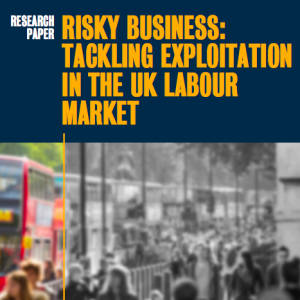 This report provides a comprehensive guide to an effective response to human trafficking for labour exploitation in the UK. It identifies the picture of risk to individuals of exploitation in the UK labour market, then presents solutions to such exploitation through: labour inspection and enforcement; gateways to advice and remedy; and corporate accountability.
This report provides a comprehensive guide to an effective response to human trafficking for labour exploitation in the UK. It identifies the picture of risk to individuals of exploitation in the UK labour market, then presents solutions to such exploitation through: labour inspection and enforcement; gateways to advice and remedy; and corporate accountability.Credit: Focus on Labour Exploitation (FLEX)
-
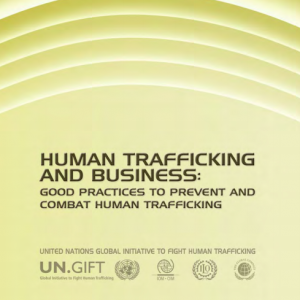 This report presents an introduction and overview of human trafficking and the role that business can play in addressing it. It draws from key case studies to illustrate some of the many ways employers can practically address human trafficking.
This report presents an introduction and overview of human trafficking and the role that business can play in addressing it. It draws from key case studies to illustrate some of the many ways employers can practically address human trafficking.Credit: UN Global Initiative to Fight Human Trafficking
-
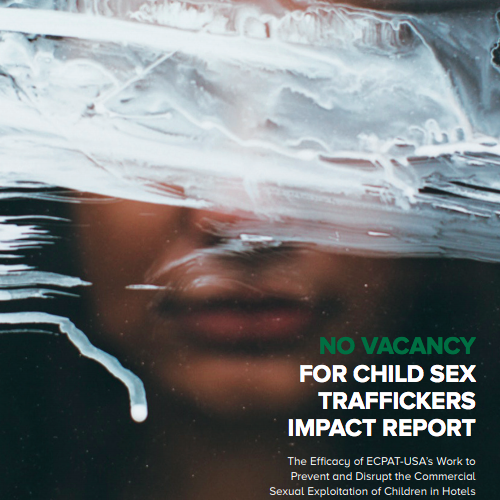 The report, "No Vacancy for Child Sex Traffickers Report: The Efficacy of ECPAT-USA’s Work to Prevent and Disrupt the Commercial Sexual Exploitation of Children in Hotels", highlights the efforts of ECPAT-USA in engaging the US travel and tourism industry in protecting children from sex trafficking and exploitation.
The report, "No Vacancy for Child Sex Traffickers Report: The Efficacy of ECPAT-USA’s Work to Prevent and Disrupt the Commercial Sexual Exploitation of Children in Hotels", highlights the efforts of ECPAT-USA in engaging the US travel and tourism industry in protecting children from sex trafficking and exploitation.Credit: ECPAT-USA
-
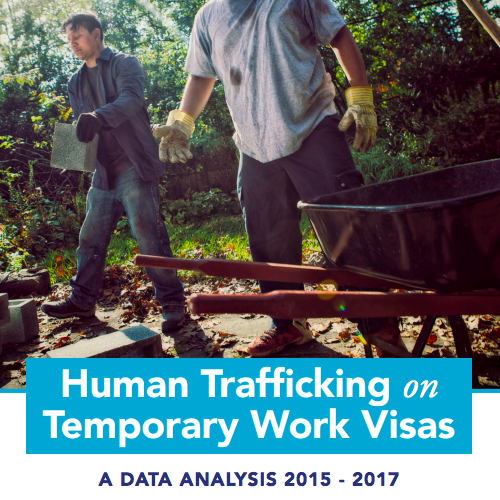 This report highlights the destructive practice of labour trafficking on temporary work visas, how the system is flawed, and the steps needed to fix it. From 2015-2017, Polaris collected data on the US temporary work visa system and identified some 800 victims of human trafficking who held temporary work visas at the time of their abuse.
This report highlights the destructive practice of labour trafficking on temporary work visas, how the system is flawed, and the steps needed to fix it. From 2015-2017, Polaris collected data on the US temporary work visa system and identified some 800 victims of human trafficking who held temporary work visas at the time of their abuse.Credit: Polaris
-
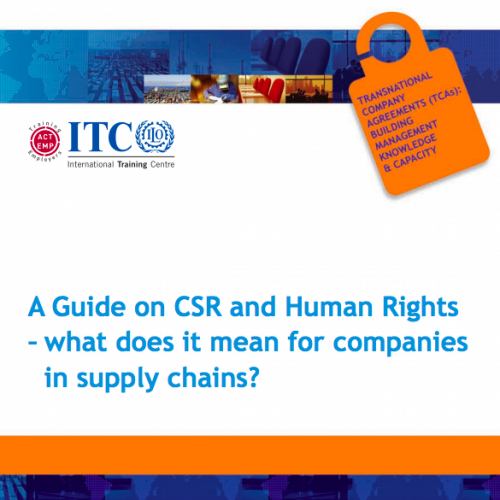 The Centre is the training arm of the ILO. This guidance is intended for small and medium-sized enterprises to understand, implement and adhere to the UN Guiding Principles on Business and Human Rights. It looks at the expectations placed on SMEs and buyers, the challenges they face and the support available for them.
The Centre is the training arm of the ILO. This guidance is intended for small and medium-sized enterprises to understand, implement and adhere to the UN Guiding Principles on Business and Human Rights. It looks at the expectations placed on SMEs and buyers, the challenges they face and the support available for them.Credit: International Training Centre for the International Labour Organization
-
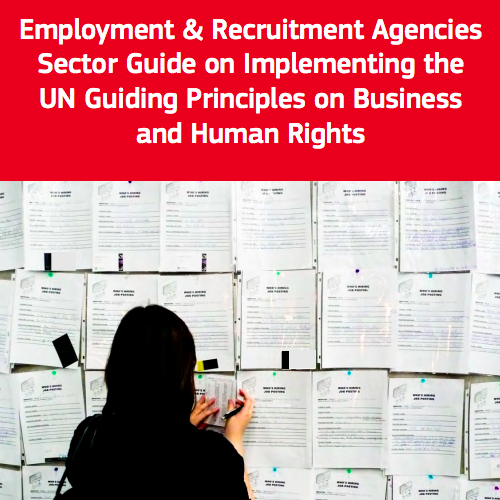 This Guide applies the UN Guiding Principles on Business and Human Rights to the specific context of employment and recruitment agencies. Recognising that each company is different, it is intended to help agencies “translate” respect for human rights into their own systems and company cultures. In December 2011, IHRB and Shift were selected by the European Commission (Directorate-General for Enterprise and Industry) to develop sector-specific guidance on the corporate responsibility to respect human rights, as set out in the UN Guiding Principles on Business and Human Rights.
This Guide applies the UN Guiding Principles on Business and Human Rights to the specific context of employment and recruitment agencies. Recognising that each company is different, it is intended to help agencies “translate” respect for human rights into their own systems and company cultures. In December 2011, IHRB and Shift were selected by the European Commission (Directorate-General for Enterprise and Industry) to develop sector-specific guidance on the corporate responsibility to respect human rights, as set out in the UN Guiding Principles on Business and Human Rights.Credit: Shift & Institute for Human Rights and Business (IHRB)
-
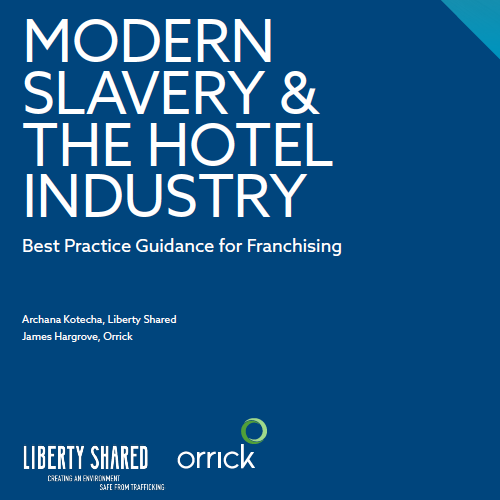 This guide, drafted by Liberty Shared, recognises the risks the hotel industry, and in particular hotels operating under major international brand franchises, face in regards to human rights abuses. This guide provides franchisors with an overview of the risks associated with modern slavery in relation to hotel franchise agreements and sets out practical solutions aimed at increasing the prospect that a franchisee's operations are free from these risks. Liberty Shared aims to prevent human trafficking through legal advocacy, technological interventions, and strategic collaborations with NGOs and corporations in Asia and globally.
This guide, drafted by Liberty Shared, recognises the risks the hotel industry, and in particular hotels operating under major international brand franchises, face in regards to human rights abuses. This guide provides franchisors with an overview of the risks associated with modern slavery in relation to hotel franchise agreements and sets out practical solutions aimed at increasing the prospect that a franchisee's operations are free from these risks. Liberty Shared aims to prevent human trafficking through legal advocacy, technological interventions, and strategic collaborations with NGOs and corporations in Asia and globally.Credit: Liberty Shared

